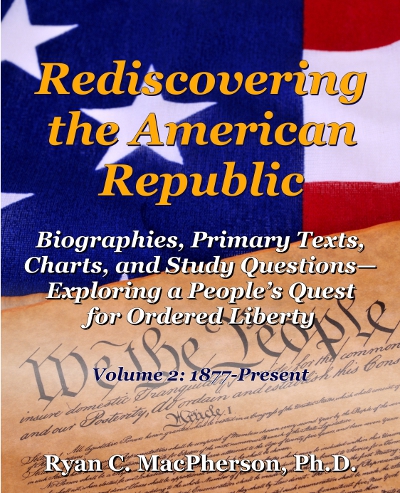
How should I best love my immune-suppressed neighbor? What is my duty toward my immune-suppressed neighbor? These compelling questions beg to be answered. Christians especially desire to reflect Christ-like love to those around us.
Many people say that everyone ought to be vaccinated to protect a few who cannot be vaccinated, particularly those who are too young for a vaccine, or those with immunity struggles. Is this true? Is this accurate?
Before we can answer this, we need to answer a few other questions:
- What if my neighbors’ needs conflict with one another?
- Would a 100% vaccination rate actually safe-guard the immune-compromised or young?
- Are there ways to protect those with low immunity without coercing unwilling participants into a medical procedure?
- Who should decide whose immunity is too weak, or strong enough, for a vaccine?
Let's start with this:
What if my neighbors’ needs conflict with one another?
It is a good and beautiful thing to care about others’ needs. However, sometimes the needs of our neighbors are in conflict with one another.
If vaccines are too dangerous for the immune-compromised, doesn’t it follow that they might be dangerous for others with health conditions?
What about the babies who were (and will be) dismembered and dissected through abortion in order that vaccines could be developed?
Those with compromised immunity can and should be cared for. But it does not necessarily follow that everyone must be immunized in order to care for them, particularly when immunization could harm (or kill) others in order to bring about that good.
Simply, it is wrong for the government or individuals to demand that others be vaccinated in order to protect a few who cannot be immunized, when the immunizations cause hurt to others in the process.
Would a 100% vaccination rate actually safe-guard the immune-compromised?
Sadly, no. Aside from the fact that there is documentation of vaccine-preventable diseases infecting 100% vaccinated populations, remember that most illnesses present in schools have no vaccine to prevent them.
Unfortunately, there is a lot of misinformation regarding vaccination and the immuno-compromised. Under normal circumstances, individuals with immune suppression can still have many vaccinations, thus the vaccination should protect them against the illness; their neighbor should not be compelled to vaccinate.
However, there are some vaccines that may be contraindicated for immuno-compromised individuals: live virus vaccines, particularly rotavirus and varicella. More difficult yet is the fact that these might be contraindicated for family members, too! Why? It is possible to spread an illness, contracted from the vaccine itself, to their immuno-compromised loved one.
Vaccinating the majority in order to show love to those too young to be vaccinated, or those with weak immunity, may actually put them at risk, at least in the case of some vaccines. The vaccinated would then be in close proximity with an immune-compromised classmate at school, something not even recommended universally for caregivers and family members!
In addition, many vaccine-preventable illnesses, such as Hepatitis B, Tetanus, Hib, and HPV, are not contagious within a normal school setting. Anyone claiming people should be vaccinated for these to protect others doesn’t really understand the science of these illnesses. No child should need to be immunized against HPV to keep another child safe at school, when this sexually-transmitted infection ought not be shared in a classroom anyway!
In summary, in at least some cases, vaccines cause the transmission of an illness. Conversely, it is never the case that those who are well transmit an illness. Emotional stories about weak or young individuals should not be used to mandate a state policy which would rob families of parental rights, bodily integrity, and the freedom of religion.
Are there ways to protect those with low immunity without coercing unwilling participants into a medical procedure?
There are hundreds of illnesses for which there are no vaccines. Even in a 100% vaccinated school population, an immunocompromised child could still become dangerously ill from dozens of illnesses for which there is no immunization. Rather than demand that everyone be immunized, the safest place for the very ill is a sterile environment. However, even this protective measure should not be mandated or forced upon families, who ought to be allowed to make a risk/benefit analysis of going out in public or attending school.
Rather than vaccine mandates, schools likely would protect immuno-compromised students better by enforcing three things: 1) hand-washing hygiene, 2) a no-school policy for anyone with symptoms of any illness, and 3) a two-week home quarantine for any child vaccinated with a live-virus. It is a complete double-standard for schools to require fully-immunized students, without requiring fully-immunized teachers and staff, who are also around the same students with weak immunity.
Who should decide whose immunity is too weak, or strong enough, for a vaccine?
If vaccination is dangerous to an immuno-suppressed child, what would vaccination do to hundreds of children with undiagnosed immune disorders?
Of course, vaccination would have the exact same side-effects on those children, too, namely, the side-effects that make vaccination contraindicated in the first child.
Many children with immune disorders are undiagnosed, or even misdiagnosed. Even with a proper diagnosis, medical exemptions are often extremely difficult to obtain in reality, for a diversity of reasons.
Vaccine manufacturers are exempt from liability for a faulty product, doctors can dismiss patients, and government representatives might never speak with a constituent. The ultimate choice for vaccination must rest with parents, who are held responsible for meeting their children’s daily needs, both physically and financially, particularly for time and expenses due to a life-long vaccine injury that package inserts and court cases confirm might happen.
Every immuno-compromised child and his family, in consultation with the medical, religious, and philosophical experts of their choosing, should have the right to vaccinate, or not, weighing the risks and benefits of such a choice. Every healthy child and her family, in consultation with the medical, religious, and philosophical experts of their choosing, should have the right to vaccinate, or not, weighing the risks and benefits of such a choice. Immuno-compromised children and their families also have the right to insulate the child in a safe and sterile situation, but they shouldn’t be forced to self-quarantine anymore than other families should be forced to vaccinate.
This is not a question of public health policy; it is a question of who decides whose rights can be sacrificed on behalf of others.
This is not a question of public health verses individual rights; it is a question of whose vision for public health will prevail.
Will a vision of government coerced “health” for the masses prevail?
Or, will a vision of health empowerment prevail, where unique individuals research, decide, and consent to what is best for themselves and their families, where biomedical individuality and diverse choices about healthcare decisions are honored?
Before I conclude this blog, if you are a contemplative critical thinker, you might be wondering: why are all these kids immune-compromised these days? Where did all of these autoimmune conditions come from? Has something changed? You might be interested in the massive ecological and biological changes vaccination has wrought in the human system. But, that’s a different post for a different day. … In the meantime, I recommend Dr. Thomas Cowan’s book, Vaccines, Autoimmunity, and the Changing Nature of Childhood Illnesses.
So, back to the fundamental question: Who should decide how we love our immune-compromised neighbor?
Parents should. Not lawmakers, not school administrators, and not even doctors. Leave this decision in the hands of parents, whom God calls to care for His children first and foremost.
Children are treasures, not cattle. They are individuals with individual medical needs, not animals in a herd. In fact, “herd immunity” applies only in natural immunity situations; it has not been proven with vaccine-induced immunity.
Families who opt out of one, some, or all vaccines still care for their neighbors. They work hard to have strong natural immunity and self-quarantine when they are sick. They have compassion for the sick and weak and help how they can; yet some choose not cause harm in order that the good of protecting another might result, especially when there are no guarantees the vaccine will work in the way intended.
How do we best love our neighbors with weak immunity, or our neighbors too young to be vaccinated? Is immunization the best, or only answer?
We need to be willing to accept that well-intentioned and warm-hearted individuals may well come to different conclusions of how best to love their immune-compromised neighbors. That is okay. We don’t need to judge one another.
There is room for discussion, even disagreement, about how to best show love to our young and immuno-compromised neighbors in a free and just society. There is not a one-size-fits-all solution.
Based on individual vocations, some might deem a vaccination the best way to love a neighbor with a weak immune system. Others might decide, based on the risk of shedding, or the harm to aborted babies, or the chemical ingredients, that the risk to their neighbors through vaccine is not worth the benefit.
Just as it would be unthinkable for the state to force isolation at home on an immune-compromised individual, it should also be unthinkable for the state to force injections on unwilling individuals, particularly when the immune response is uncertain.
There are ways to love our sick and weak neighbors, without sacrificing other neighbors. Anyone who tries to convince you otherwise likely doesn’t have all of the facts, or else has ulterior motives.
Mrs. Marie K. MacPherson, vice president of Into Your Hands LLC, lives in Casper, Wyoming, with her husband Ryan and their children, whom she homeschools. She is a certified Classical Lutheran Educator (Consortium for Classical Lutheran Educators), author of Meditations on the Vocation of Motherhood (Old Testament vol., 2018; New Testament vol., 2023), and editor of Mothering Many: Sanity-Saving Strategies from Moms of Four or More (2016).


